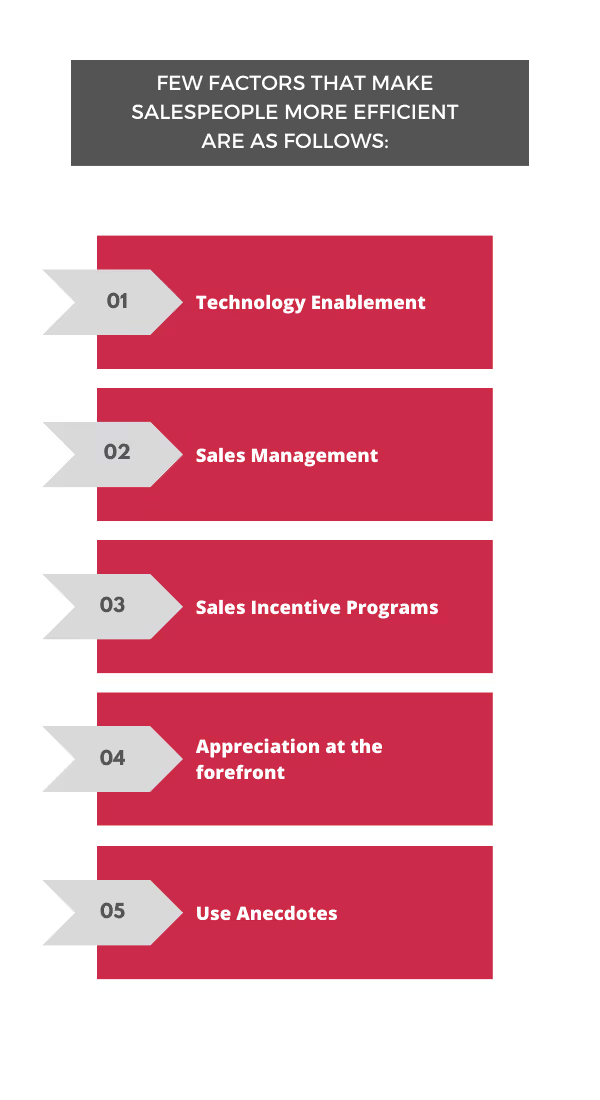
Blog
Does incentive compensation make salespeople more efficient?
July 22, 2022


Key Insights
Ingenious ways to motivate sales teams are a constant pursuit of sales executives. Announcement of new bonus programs is made during grand kickoff meetings. Exotic trips are promised to rainmakers. A sales contest is held when the business is slow. In the event of sales targets not being achieved, sales and incentive compensation is blamed and the process begins again. But the most common method of motivation that will never go out of fashion is offering incentives. Incentive-driven behaviour is common.
Employees, even the most motivated ones, need a nudge to keep them committed, and performance-based incentives, such as various types of incentive compensation, can be one of those nudges. The goal of incentive compensation is to link a salesperson’s earnings directly to how much product is sold, how successful the teams are, or the total contribution to the organization. A strategy for managing incentive compensation is to align sales rep behaviour with an organization's objectives and improve business outcomes. There is a strong belief among managers that good incentives can significantly improve salespeople's performance.
It can be helpful to strategically adjust the mix of commissions, quotas, salaries, and bonuses for the salesforce. Smart, creative, and innovative revisions of compensation models have the potential to increase sales by 50% when compared with changes in advertising investments.
What are the factors that make salespeople more efficient? Can incentive compensation be one of them?

No two sales organizations are the same. There is no single formula that can cure any setbacks in your sales organization. If you want to improve sales performance through effective sales performance management, you must take into account a variety of internal and external variables. Nevertheless, there is no denying the fact that an efficient person produces expected results a lot more quickly than those whose goals are not aligned with that of organizations. A productive employee, under the guidance of a robust sales performance management system, will achieve the desired objectives more easily if they maintain a certain level of quality and have the same initial level of resources.
When a person is efficient, he or she can achieve their goals with little effort and through a variety of means. According to a recent study by management consulting company Gallup, 72% of motivated employees believe they can have a positive influence on customer service. However, there is no guarantee that a motivated employee will be efficient. Motivation, always, does not equate to efficiency. There is a tendency among some managers to draw both efficiency and motivation as a direct parallel.
Few factors that make salespeople more efficient are as follows:
- Technology Enablement: Technology plays an important role at every stage of the sales process (including training and development opportunities). Your sales team can utilize technology to maximize performance and be more efficient in research. Moreover, they will have the opportunity to interact virtually with their clients and prospects before travelling at great expense in person. Although it is important that salespeople incorporate the technology into their presentation, it is also vital that they are familiar with its use.
- Sales Management: An effective sales manager greatly impacts the success of salespeople. A good sales manager will have the skills and motivation to support changes and development initiatives. Sales managers should serve more than just as schedule monitors and number crunchers. A sales manager's role is to coach their reps to perform at their peak levels.
- Sales Incentive Programs: Sales Incentive Programs: Money talks. It is of crucial importance to ensure that the desired behaviors and outcomes are rewarded. Sales teams can utilize a Sales Incentive Calculator to optimize their incentive plans and drive performance. Oftentimes, a disconnect occurs when your sales strategy has changed, thus your sales rep expectations have changed, but your incentive program remains unchanged, increasing the likelihood of the old behaviors continuing. Assist in achieving very specific sales objectives and achieve very specific outcomes. To make this process even more effective, consider using relevant sales acronyms to simplify communication and goal tracking.
- Appreciation at the forefront - People expect their reporting managers and senior managers of the company to recognize their efforts and appreciate them for their achievements. Knowing that their work is being noticed by people who matter the most in the overall professional growth and promotions boost employees to keep optimizing their performance on all levels.
- Use Anecdotes: and keep repeating them. Keep narrating the story of the dark horse in the organization who became a Vice President merely on the basis of performance. Every organization has a handful of people in the top management that grew exponentially in their field of work. Reminding employees about such journeys with anecdotes is a great way to keep them pumped up to work and achieve more.

How do you transform motivation into efficiency?
Considering all of the above, incentivizing employees to achieve quality objectives can show them the path to efficiency which is long-lasting. To achieve greater individual efficiency, it is important to show employees, step by step, how better individual efficiency can be achieved. In order to monitor their progress, it is important to use qualitative indicators. These include customer relations skills, training skills, communication and development skills, and teamwork. Incentive compensation when managed efficiently using qualitative indicators can act as significant motivators for employees.
Through incentive programs, employees are rewarded for reaching work goals, achieving milestones, or simply doing a good job. By rewarding employees with incentives, you demonstrate that you value their input while increasing the overall performance of the business. There is a strong correlation between sales incentives and cash (trips, prizes, points, trophies, or other rewards). These, undoubtedly, play a strong and invaluable role.
Business efficiency stems from business strategy

Businesses, departments, or individuals who are efficient can achieve their goals and results. Success in sales is determined by 20% aptitude and 80% attitude. They will work more efficiently and effectively when salespeople are aware they will be appreciated by getting an incentive or reward for their efforts. Costs, deadlines, quality, and even profitability are included in the concept of commercial efficiency. The question here arises: How can you assess an employee's business efficiency?
Commercial efficiency is measured using KPIs (key performance indicators), which are qualitative and/or quantitative. KPIs do not just pertain to one department. Various departments, teams, and projects are required to reach these company-wide targets. There is a general perception that KPIs are quantitative in nature, but they can certainly be non-quantitative as well as a few other kinds of KPIs that exist today. If we want to correctly understand the KPIs related to business efficiency, it is important to consider the company's field of expertise, the context of the economy, seasonality and level of competition on the market.
Conclusion
Incentives such as commissions, bonuses, stock options, and prizes are the modes that employers usually use to motivate sales personnel. These modes come with a set of unique attributes that might make them more or less applicable for a given job, person, or organization. Thus, it is certain that the creation of an incentive-based compensation structure that strikes an appropriate balance between quantitative and qualitative criteria will assist salespeople in attaining greater performance and efficiency. Incorporating the principles of management by objectives (MBO) into your sales incentive programs can provide a structured framework for aligning individual sales goals with broader organizational objectives.
Read More
Basics of Sales Incentive Compensation
What is Incentive Compensation, afterall?
Sales Compensation best practices to Improve your Sales Incentives
Building the new era of Incentive Compensation Management
In the Trenches: Sales Compensation Plans that Work in the Real World
ReKennect : Stay ahead of the curve!
Subscribe to our bi-weekly newsletter packed with latest trends and insights on incentives.
Thank you! Your submission has been received!
Oops! Something went wrong while submitting the form.
Your data is in safe hands. Check out our Privacy policy for more info











